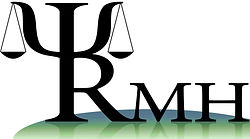REFLECTIONS OF MENTAL HEALTH INC.
Dr. Vickki-Ann Samuel MD - Psychiatrist
18425 NW 2nd Ave Suite 404B
Miami Gardens, FL 33169

We have moved!!!
We look forward to serving you at our new location
18425 NW 2nd Ave Suite 404B
Miami Gardens, FL 33169
A mental illness is a disease that causes mild to severe
disturbances in thought and/or behavior, resulting in an inability
to cope with life’s ordinary demands and routines.
There are more than 200 classified forms of mental illness.
Some of the more common disorders are depression, bipolar
disorder, dementia, schizophrenia and anxiety disorders.
Symptoms may include changes in mood, personality,
personal habits and/or social withdrawal.
Mental health problems may be related to excessive stress due
to a particular situation or series of events. Mental illnesses can
affect an individual physically and emotionally. Mental illnesses
may be caused by a reaction to social stressors, genetic factors,
biochemical imbalances, or a combination of these. With
professional intervention, individuals can learn to cope or
recover from mental illness.
Depression
Depression is more than feeling sad. Depression consists of intense feelings of sadness, losing interest in things you enjoy, lack of energy, drive or motivation, inability to focus. The symptoms can linger for extended periods of time, recur and fluctuate during stressful life events, and affect an individual’s ability to function. Depression is a medical illness, not a sign of weakness, and it is treatable.
Bipolar disorder
Bipolar disorder is a mental illness that consists of both symptoms of depression, hypomania and/or mania. It is different from the normal ups and downs that everyone goes through from time to time.The different mood extremes may cycle on a weekly or monthly basis. Bipolar disorder is very serious and can result in damaged relationships, poor job or school performance, cause risky behavior, and suicidal tendencies. Bipolar disorder can be treated with therapy and medications. With treatment, people with this illness can lead full and productive lives.
Anxiety/Panic Attacks
Anxiety is a normal reaction to stress. For some people anxiety can become excessive and difficult to control and may negatively affect their day-to-day living. Anxiety disorders include generalized anxiety disorder, social anxiety, panic disorder, post-traumatic stress disorder, and obsessive compulsive disorder. These disorders can greatly impact an individual’s ability to function in social and occupational settings. Anxiety attacks and panic attack symptoms can be treated with medication and psychotherapy.
Acute Stress Disorder (ASD) or Post-Traumatic Stress Disorder (PTSD)
ASD or PTSD are anxiety disorders that may occur following an individual’s exposed to death, threatened death, actual or threatened serious injury, or actual or threatened sexual violence. Immediately, months or years following the exposure an individual may experience recurrent intrusive thoughts of the event that cause marked distress, heightened arousal, nightmares, and/or emotional detachment. These symptoms can negatively affect an individual’s ability to function.
Obsessive-compulsive disorder (OCD)
OCD is characterized by unreasonable thoughts and fears (obsessions) that lead you to do repetitive behaviors (compulsions). Despite efforts to ignore or get rid of bothersome intrusive thoughts, the thoughts or urges keep coming back and have a negative impact on an individual’s daily functioning.
ADHD
Attention deficit hyperactivity disorder (ADHD) symptoms begin in childhood and may continue into adulthood. ADHD symptoms include inattention, being easily distracted, and hyperactivity. These symptoms can cause problems at home, school, work, or personal relationships.
Psychosis
Psychosis is a loss of contact with reality. It consists of delusions, hallucinations, and/or paranoia. Episodes can be brief precipitated by interpersonal stressors or chronic. These symptoms can be relieved with the aid of psychotherapy and psychotropic medications.
Schizophrenia
Schizophrenia symptoms include distorted thoughts, hallucinations, and feelings of fright and paranoia. These symptoms can be relieved with the aid of psychotropic medications.
What is mental illness?



